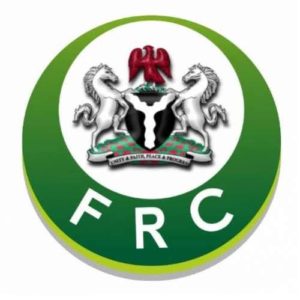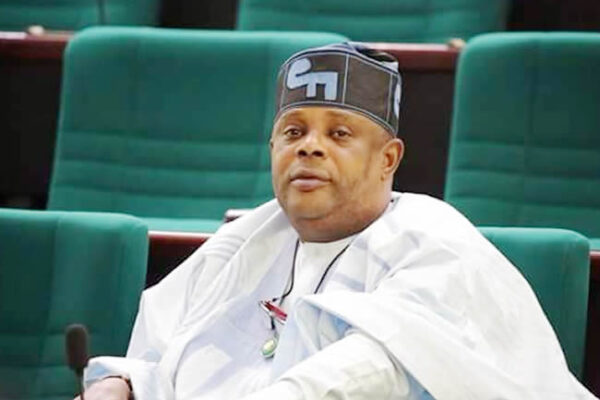By Ossom Raphael
 A total of 115 Public Sector Entities comprising of Government Parastatals, Government Agencies, and Government Business Entities have filed their Annual Financial Statements with the Financial Reporting Council of Nigeria (FRC).
A total of 115 Public Sector Entities comprising of Government Parastatals, Government Agencies, and Government Business Entities have filed their Annual Financial Statements with the Financial Reporting Council of Nigeria (FRC).
The Executive Secretary of the FRC, Amb. Shuaibu Adamu Ahmed, made this known at the opening session of a national learning and development programme on accounting and financial reporting in the public sector on Tuesday in Abuja.
Ahmed warned government entities that have not filed their audited financial statements to do so as the Council would continue to weild the big stick on defaulting agencies as necessary fines and penalties would be imposed on them in line with the provisions of the FRC Act and its extant rules.
He said : “Between the end of 2020 and 2021 to date, a total of 115 public sector entities comprising of government parastatals, government agencies, and government business entities have filed their annual financial statements with the FRC.
“This is a very significant progress. For those who have not filed, we have begun imposing fines and penalties on them in line with the provisions of the FRC act and its extant rules.
“Our experience from the review of this AFS filed with us show that financial reporting in the public sector is confronted with challenges and issues to which this programme is designed to address.
“Our various engagements with the National Assembly further expose the lingering issues of late submission of financial reports by MDAs, lack of proper treatments of accounting issues, poor disclosures, etc.
“Public Sector Entities play a pivotal role in the national economy as a major driver of productive activities and the largest single business entity. As a bedrock of the economy, the importance of financial reporting quality in the national economy cannot be over emphasized.
“Credible financial reports are no doubt germane as they not only support efficient decision making by those charged with governance, but also boost the perception index of the country and by extension, enhancing Foreign Direct Investments (FDIs) and Foreign Portfolio Investments (FPIs) as veritable tools and catalysts for the nation’s economic growth.
“Public Sector Entities are expected to provide financial information that are not only timely but are accurate and useful for decision making and most importantly germane to evaluating the government performance as a bastion of public accountability and stewardship.”
Ahmed therefore, used the occasion to called on the National Assembly to make it a rule that the budget proposals of Public Sector Entities in default of filling their AFS of the previous year should not be considered and approved for the coming year.
“Let me use this opportunity to stress the importance of timely preparation, audit and filling of AFS and also warn against unnecessary delay in this respect.
“A situation where critical institutions of Government, some of them apex regulatory bodies, are 2 to 3 years behind in releasing their audited financial statements should not will no longer be tolerated going forward.
“I want to therefore call on the National Assembly to make it a rule that the budget proposals of Public Sector Entities in default of filling their AFS of the previous year would not be considered and approved for the coming year.
“We at the FRC have resolved to set good example by ensuring that our 2021 AFS are prepared, audited and filed within 2 months after end of the 2021 Financial Year”, he said.
On his part, the Minister of Industry, Trade and Investment, Otunba Niyi Adebayo, said a major challenge of financial reporting by public sector entities is the poor knowledge and application of accounting standards.
The Minister of Industry Trade and Investment Mr Niyi Adebayo, said a major challenge of financial reporting by public sector entities is the poor knowledge and application of accounting standards.
The Minister, represented by his Technical Adviser, Kamar Bakrin, said full professional knowledge of the International Public Sector Accounting Standards is a basic requirement for public sector entity to keep proper accounts.
“This program is therefore essential for government agencies and I commend both FRC and the Office of the Accountant General of The Federation for the creation of this forum.
“I have been informed that the Financial Reporting Council of Nigeria has carried out a review of some of the financial statements filed with them by a number of public sector entities and a lot has been revealed.
“It has been observed that there is lack of proper understanding of the requirements for credible financial reporting in the public sector.
“Some public sector entities still use the Statement of Accounting Standards (SAS) issued by the defunct Nigerian Accounting Standards Board (NASB) as their reporting framework while others use a number of other formats.
“This lack of uniformity hinders credible financial reporting and makes comparability difficult”, he said.
The Minister explained that since the advent of the Covid-19 pandemic, Nigeria has had to dramatically reduce all non-essential spending, adding that the assurance of sound and accurate financial reporting will go a long way in ensuring government funds are appropriately utilized.
—————————————————————————————————————————————
Your help to our media platform will support the delivery of the independent journalism and broadcast the world needs. Support us by making any contribution. Your donation and support allows us to be completely focus, deeply investigative and independent. It also affords us the opportunity to produce more programmes online which is a platform universally utilised.
Thank you.
Please click link to make – DONATION








